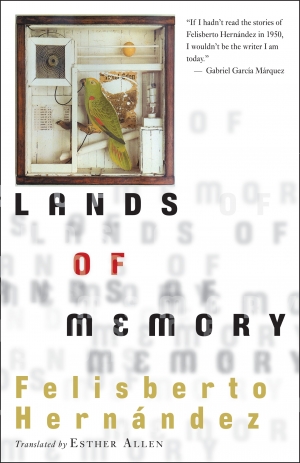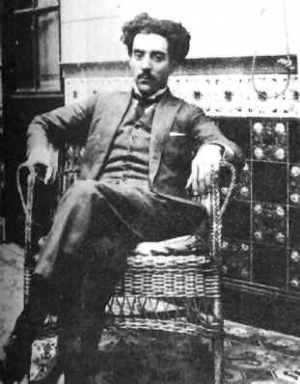Felisberto Hernández is one of the rare writers who, through the sheer strength of their imagination, can rewire your brain and melt your perception of reality. I first came across his name years ago in an essay by Roberto Bolaño where he reminisces about authors who were important to him in his youth yet eventually fell into oblivion. And when I read Hernandez’ Lands of Memory, a collection of stories by the Uruguayan author originally published in 1942, it blew my mind. Despite his decades of obscurity (Lands of Memory wasn’t published in English until 2002, and even in Latin America he remained mostly unread outside elite literary circles), Hernández was a huge influence on several important writers who championed him over the years. In the US, Francine Prose was an early advocate, and wrote the preface for a reissue of another collection of his, Piano Stories. Gabriel García Márquez admitted, “If I hadn’t read the stories of Felisberto Hernández in 1950, I wouldn’t be the writer I am today.” And Italo Calvino wrote in 1973, “Hernández is a writer like no other: like no European, nor any Latin American. He is an ‘irregular’ who eludes all classification and labeling, yet is unmistakable on any page to which one might randomly open one of his books.”This “irregularity” might explain his obscurity (and the difficulty categorizing him), but it doesn’t excuse it. Lands of Memory, a mind-bending collection of four short stories and two novellas, confounds what we think we know about reality. Hernández was a pianist who played the smaller concert halls of Uruguay and Argentina, and gave recitals and private performances. His life as a pianist and the human interactions therein inform his work and serve as a foil for the strange abstractions that riddle the prose, as if life itself were an improvised tune full of eerie modulations. In a passage from the opening story, “Around the time of Clemente Colling,” the young narrator is visiting “the long-lived ladies,” three elderly sisters whose nephew was a piano prodigy. “The mystery of that place wasn’t crouched in shadows or in silence. It lay, rather, in certain turns, rhythms or bends that suddenly took the conversation to places that didn’t seem to be part of reality.” Pianos and performances recur regularly throughout the stories. The narrator might be taking lessons from an eccentric piano teacher whose house becomes a kind of living museum, or serving as a personal musician for a crazy wealthy lady. The hulking instrument might be passive: “The big, black grand piano, like a somnolent old animal crouched on its thick paws, meekly endured the hands that slammed down on its yellow teeth and filled its innards with loud noises.” Or dangerous: “I would try to hang onto that piano as if I were fishing and had caught a shark. Who knew what might happen! Perhaps shark and audience would both be disconcerted by my audacity.”The physical world in Hernández’ prose is strangely fluid, with objects taking on a life of their own. It’s as if the physical world has traded places with memory, which, as the title of the collection suggests, takes a central role in the stories, and memory itself becomes the solid form of reality. “Around the Time of Clemente Colling” revolves around the young narrator and a blind piano teacher with bad hygiene who serves as his mentor. In one passage, “The memories come, but they don’t keep still. And some very foolish memories clamor for attention, too. I don’t yet know whether, despite their childishness, these have some important connection to the other memories, or what meanings and reflections memories exchange among themselves. Some seem to protest the selection the intellect claims to make among them.”In “The Crocodile,” a story about a stocking salesman who finds that his uncontrollable crying jags boost sales, a concerned proprietor of a store where the narrator is making a tearful sales pitch, says, “But compañero, a man’s got to have some spirit.” The narrator replies, “I’m fine, really. I have lots of spirit! It’s just that sometimes this comes over me; it’s like a memory … ” Finally, in the title story, which concludes the collection, we get a glimpse at the dynamic that fuels Hernández’ narrative. “I was disappointed … by what had happened between my body and me as a result of the performance of a piece of music. At no time could I dismount from my body. And this forced coexistence exposed me to all sorts of risks. I certainly didn’t want to be rid of [my body] or even to neglect it … and my body was also what furnished me with the comforts I needed in order to penetrate the mysteries to which my imagination was drawn.”It’s that tug of war between mind and body, the imaginary and the mundane, the present fixed world and the fluid landscape of memory that defines Hernández. And thankfully for us, the strength of his creativity saved him from oblivion.—Ian Wolff is a writer living in Albuquerque. He has two self-published collections of prose available online through the iBooks store, and his prose, essays and a film based on one of his short stories can be found at ianzwolff.com.



